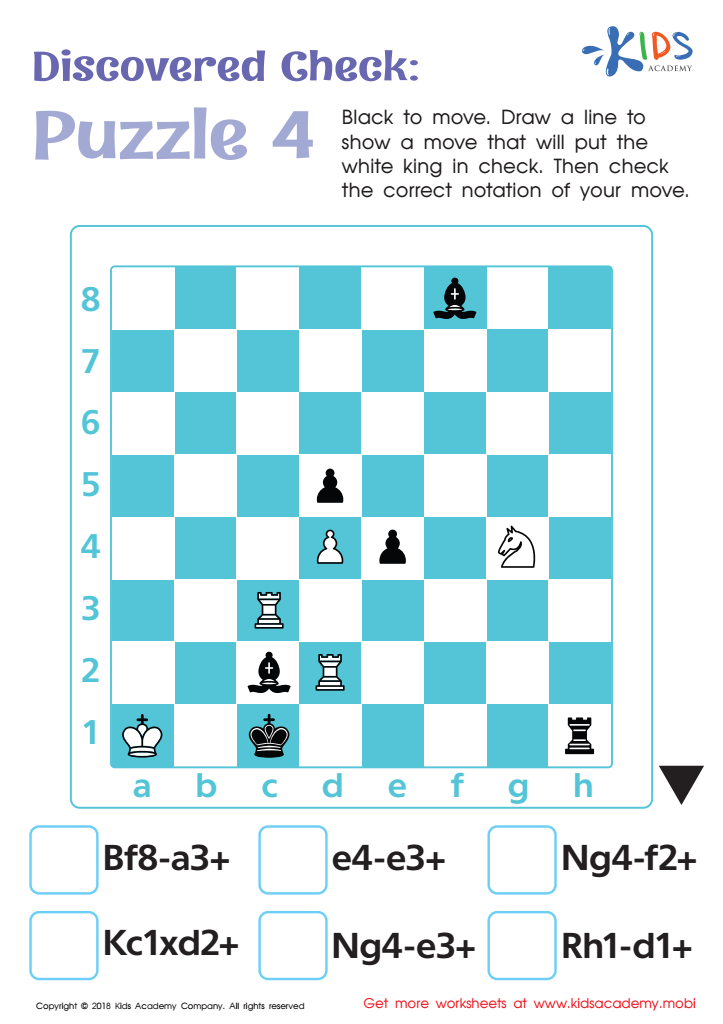Learning chess rules Worksheets for Kids
1 filtered results
-
From - To


Discovered Check: Puzzle 4 Worksheet
Question/Answer
What are some effective activities to train students’ Learning chess rules skill when teaching them about Chess?
Effective activities for training students in chess rules include interactive lessons like setting up the chessboard together, using mini-games focusing on how each piece moves (e.g., pawn races, knight's tour), employing puzzles that require understanding of specific rules (e.g., en passant, castling), and practicing real game scenarios in pairs to apply rules in context while receiving immediate feedback.
What does the Learning chess rules skill mean when it comes to Grade 1 Chess learning?
The Learning chess rules skill in Grade 1 Chess learning involves teaching beginners the fundamental rules of chess. This includes how each piece moves, the concept of check and checkmate, the special moves (castling, en passant, pawn promotion), and basic principles of starting a game. It sets the foundation for understanding and enjoying the game.
How does the mastery of the Learning chess rules skill affect a student's performance at an early age?
Mastery of Learning chess rules at an early age can improve a student's cognitive skills, enhance problem-solving abilities, and boost memory and concentration. It also fosters logical thinking and strategic planning. These cognitive benefits can translate into improved academic performance, particularly in mathematics and reading comprehension.












